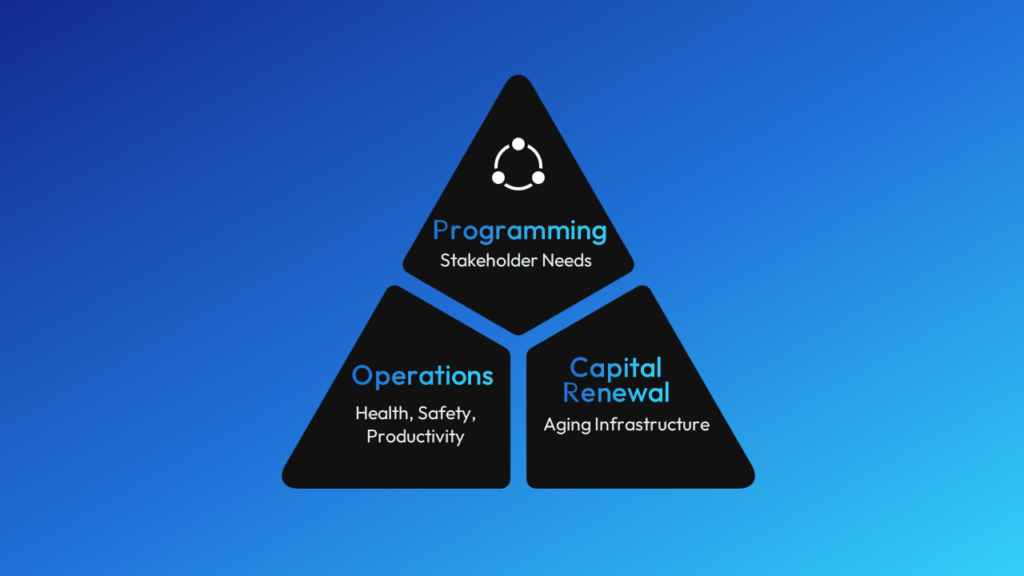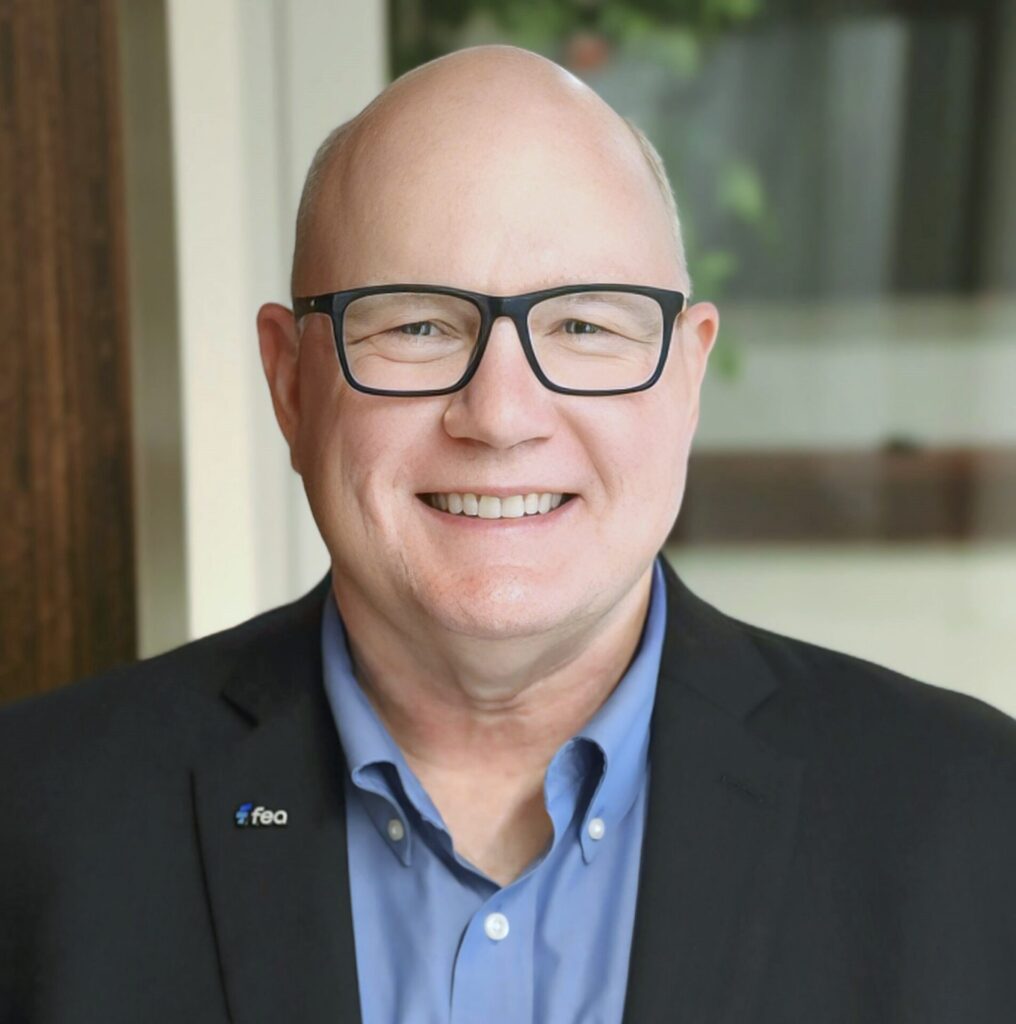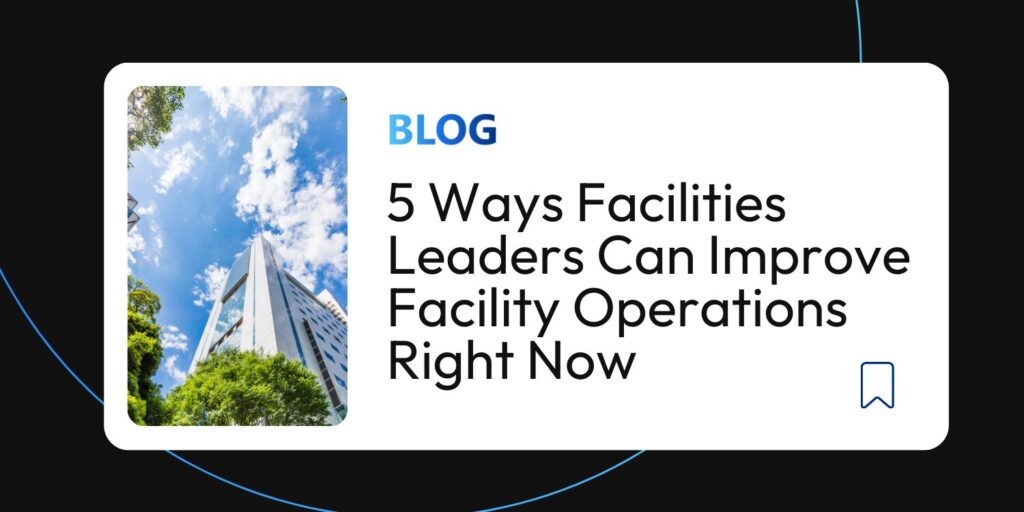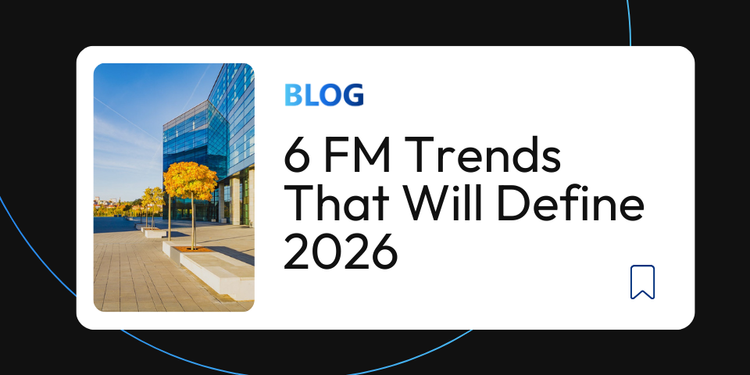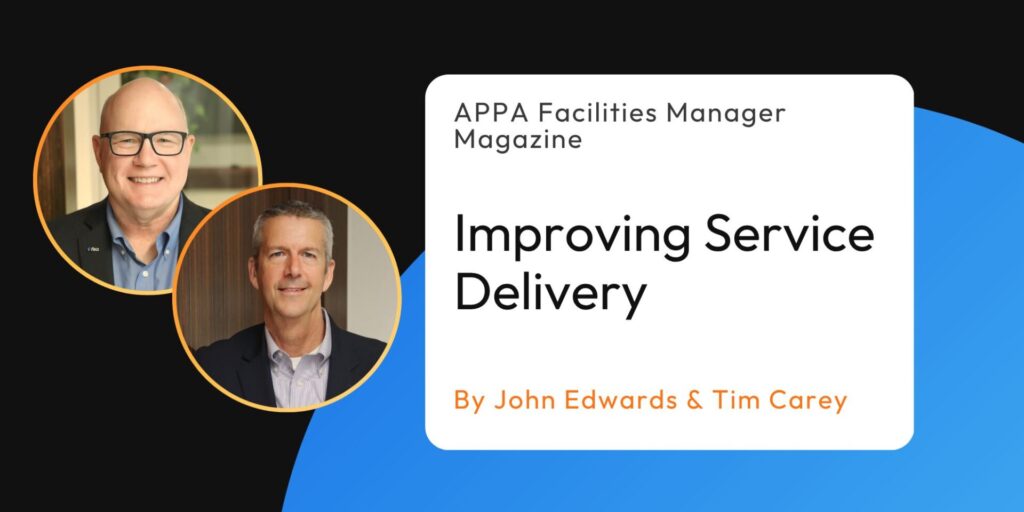Framework to Improve Asset Management
Asset management programs face many hurdles in relation to operations and maintenance, such as:
- Inadequate funding
- Program needs evaluated independently of current conditions
- Organizational bias towards new construction
- Defining, managing and reporting deferred maintenance backlog and capital renewal needs
One of the key challenges in asset management is the lack of integration between various departments and their individual goals. Often, programming, operations, and capital renewal efforts are handled independently, leading to disjointed planning and missed opportunities for synergy. This siloed approach can result in inefficient resource allocation, unnecessary costs, and the neglect of important maintenance needs.
By applying the Total Cost of Ownership (TCO) framework, organizations can bridge these gaps, creating a unified approach that aligns all aspects of facility management. TCO enables organizations to view their assets holistically, allowing for better coordination between departments and more effective long-term planning, ensuring that all needs—whether operational, programming, or renewal—are addressed comprehensively and strategically.
In addition to fostering better coordination, the TCO framework also provides a more predictive approach to asset management. By considering the total cost of ownership—spanning initial design, construction, ongoing operations, and eventual renewal—organizations can better anticipate long-term expenses and plan for them accordingly.
This comprehensive view helps facility managers make informed decisions about where to allocate funds, when to invest in upgrades, and how to balance short-term operational needs with long-term sustainability goals. Rather than reacting to crises or unexpected expenses, a TCO-based strategy allows for proactive management, ensuring that resources are available when needed and that future maintenance and renewal projects are prioritized and funded effectively.
Moreover, TCO encourages greater transparency and accountability in decision-making processes. With a clear understanding of the full lifecycle costs of an asset, organizations can present a more compelling case for funding requests, backed by data that supports both immediate and future needs.
This transparency helps to justify funding decisions to stakeholders, whether it’s securing budget approvals, prioritizing capital projects, or managing deferred maintenance backlogs. By aligning programming, operations, and capital renewal with a long-term financial strategy, the TCO framework ensures that asset management isn’t just about maintaining facilities today, but about preparing for tomorrow’s challenges in a sustainable and financially responsible way.
Total Cost of Ownership (TCO) Is a Framework to Improve Asset Management
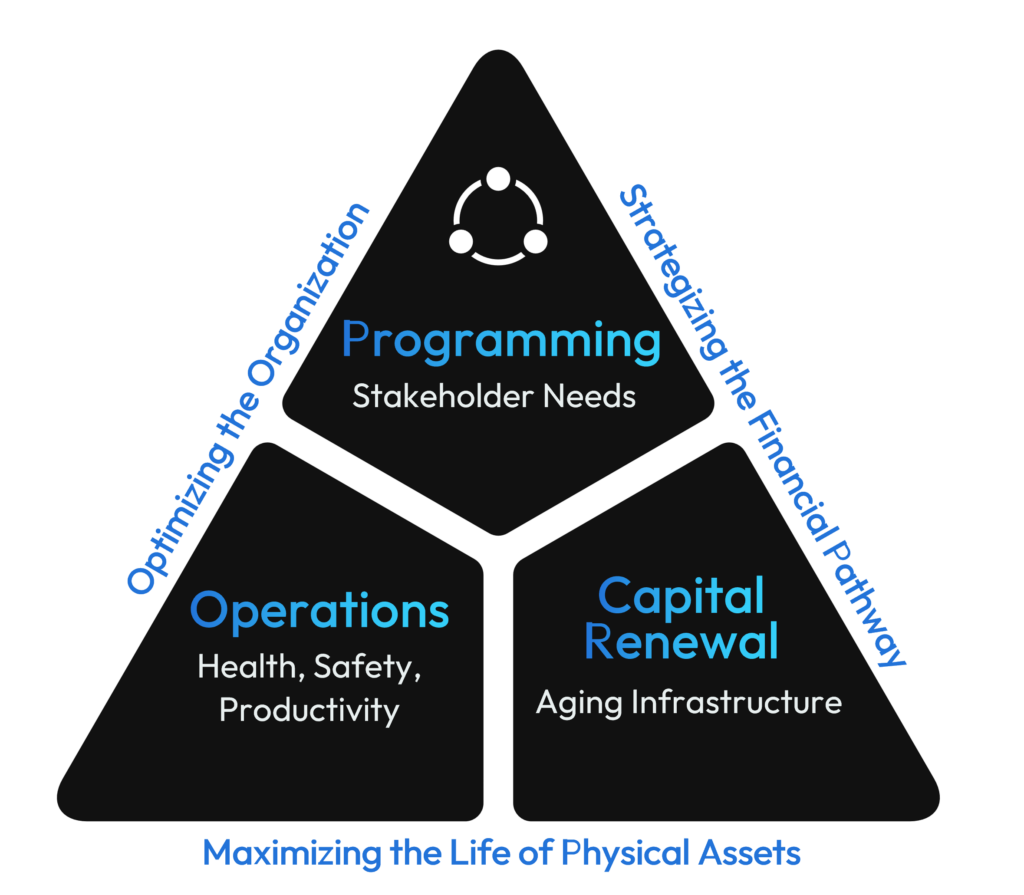
TCO is a framework to improve asset management that helps define the financial needs analysis for your organization, and considers all of the costs of designing, building, operating, maintaining, and renewing physical assets by integrating programming, operations and capital renewal planning.
TCO integrates programming, operations, and capital renewal planning to enable communities, organizations, and buildings that are efficient, resilient, and safe.
APPA has an article about the TCO framework, that you can read here.
There are several drivers to consider:
- Programming (stakeholder needs)
- Operational Requirements (health, safety, productivity)
- Capital Renewal (aging infrastructure)
Ultimately, TCO enables facility asset managers with…
- Improved operational and capital renewal planning
- Long-term roadmap for facilities
- Approach that will outlast organizational changes
Adopting the Total Cost of Ownership (TCO) framework is a powerful strategy for organizations looking for framework to improve asset management practices. By integrating programming, operations, and capital renewal planning, TCO provides a comprehensive and forward-thinking approach to facility management. It empowers organizations to make well-informed, data-driven decisions that align with long-term goals while optimizing resources, reducing risks, and ensuring the resilience of their facilities. With TCO, asset managers can confidently navigate the complexities of maintenance, renewal, and growth, ensuring that their buildings remain safe, functional, and cost-effective for years to come.
Harness the power of TCO to make informed, predictive, and defensible building life cycle investment decisions and build a long-term plan for your facilities.
